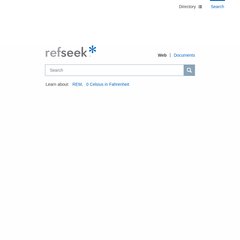

- #Pdf search engine academic pdf
- #Pdf search engine academic full
- #Pdf search engine academic license
PMC indexes the full-text version of the article. Check to see if the article you are interested in is available on PubMed Central (PMC).
#Pdf search engine academic license
Look for articles with a CC license as they will be free to read and download. Publishing OA under a Creative Commons license allows authors to retain copyright of their work while allowing others to copy, distribute, and make some uses of their work. Search social media platforms such as Twitter, LinkedIn, and Facebook to see if the author has a public profile, so you can get in touch and interact. Often authors will publicize their work and share free-to-access copies, as they want their research to be read and cited. Each link can be used an unlimited number of times during the validity period. The link sent to you through the “Share” function will provide you with a 30- or 90-days free access (depending on the journal) to an EPUB format of the journal article. SAGE offers the “Share” option on articles to help provide an easy and ethical option for non-subscribers to access articles. Know someone who has access to the content? If the content is in a SAGE Journal, ask your contact with authorized access to use the “Share” button feature on the SAGE Journals platform. Libraries sometimes have arrangements in place to facilitate ILLs. You might also ask your librarian if they can arrange an interlibrary loan (ILL) with another library that does have access to the article.
#Pdf search engine academic pdf
We recommend browser plug-ins like Lean Library (a SAGE Publishing Company), that have all this behind-the-scenes detail and can serve up the PDF immediately. Publishers like SAGE also partner with Google Casa to help streamline off-campus library access. But sometimes your library does have access it is just they have subscribed via a third-party aggregator like OVID, EBSCO and JSTOR. When you try to use your institution’s credentials there, it may say that your library does not have access. For example, you might find an article on Google Scholar.

When researchers discover content outside the library portal and library search engine, they often encounter difficulty using the right credentials. Sounds obvious, but double check that your library does not have access.
#Pdf search engine academic full
At the bottom of the search landing page, you’ll see the ability to select “Only content to which I have full access”: When you are on the SAGE Journals website, click “Advanced Search”. The results will also include content that is free to read, perhaps via a CC license. The SAGE Journals website offers you the ability to filter content you have access to, whether that access is granted via your institution, organization, or society to which you belong. Identify which articles you have access to. Here are a few tips to access the research you need in an ethical way when you encounter paywalls. Articles in subscription journals are typically available with access through an institutional or individual subscription to the journal. While Open Access is growing, a large amount of published content is published in subscription journals. In fact, in 2020, the number of outputs in Open Access channels surpassed those in subscription channels for the first time ever, according to Dimensions. Authors have the option to publish their article under a Creative Commons (CC) license in a traditional subscription journal (hybrid OA) or in a Gold OA Journal, where all content is published under a CC license (gold OA). Increasingly, research papers are published outside the paywall, with the number of Open Access (OA) articles published across the industry growing annually. We continually aim to disseminate high-quality, impactful research with robust methodology, and we want to ensure researchers can easily find and access our content. SAGE’s mission is building bridges to knowledge – supporting the development of ideas through the research process.


 0 kommentar(er)
0 kommentar(er)
